UArizona Cancer Center Awards & Publications (October 2020)
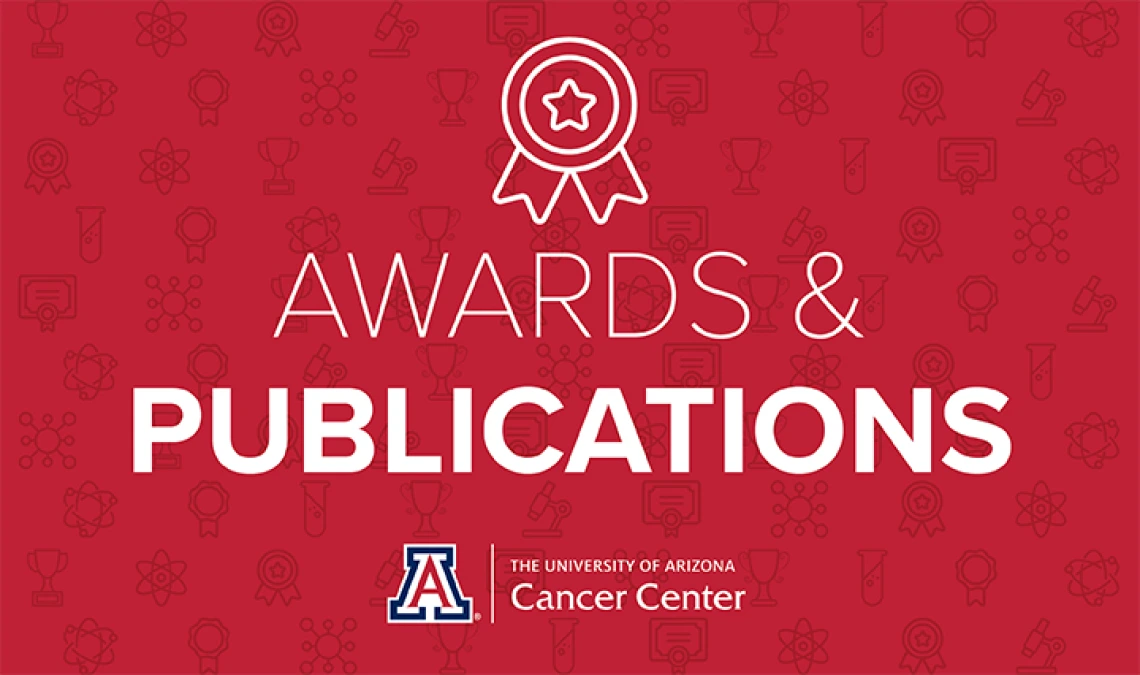
Awards Update: October 2020
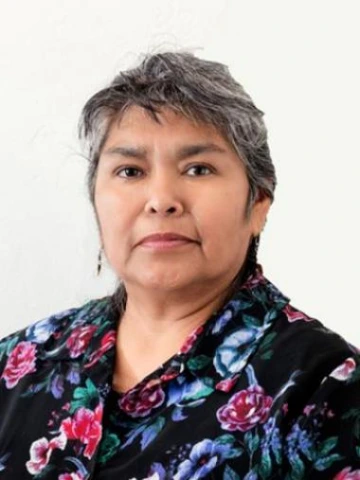
Francine C. Gachupin, PhD
Cancer Prevention and Control Program, Research Member
Project Title: Achieving American Indian Youth Energy and Mental Health Balance
Grant Number: 1R01MD014127-01A1
Administering Institute: National Institute on Minority Health and Health Disparities (NIMHD)
Funding: $2.8 million (5 years)
Project Research: The study aims to improve the health of American Indian youth by reducing their risk for obesity and related metabolic diseases through the adoption of healthier behaviors. Dr. Gachupin and her team will work in partnership with Arizona tribal partners to develop and test a community-led intervention that aims to increase parental and caregiver engagement. The new program expands on her American Indian Youth Wellness Camp, a weeklong intensive program that includes health screenings, nutrition education, physical activities and mind-body medicine skills training. Read more.
Dr. Gachupin Says: “We know that American Indian youth have the highest prevalence of obesity of all ethnic groups in the United States. This puts them at a much higher risk for adult obesity and obesity-driven diseases such as diabetes, cardiovascular disease, high blood pressure, stroke and cancer.”
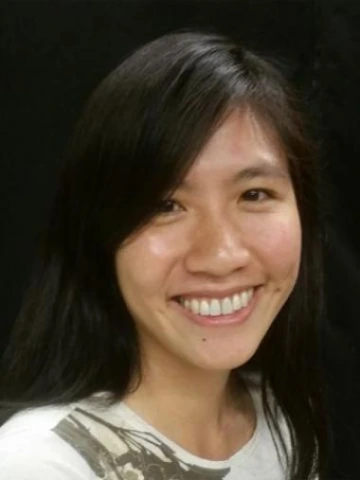
Tsu-Te Judith Su, PhD
Cancer Imaging Program, Research Member
Project Title: Label-Free Single Molecule Detection for Basic Science and Translational Medicine
Grant Number: 1R35GM137988-01
Administering Institute: National Institute of General Medical Sciences (NIGMS)
Funding: $1.8 million (5 years)
Project Research: The research explores a novel, label-free, optical approach to detect low concentrations of disease biomarkers. Sensitive and robust detection of disease biomarkers is important not only for enabling early detection of the disease, but also to support current efforts to develop early treatments and prevention therapies. Dr. Su’s lab focuses on development and use of ultra-sensitive optical sensors for basic science as well as translational medicine. They have developed a technique known as FLOWER (frequency locked optical whispering evanescent resonator), which is capable of very sensitive and rapid label-free detection of molecules down to the single molecule level. The ability to detect trace amounts of cancer biomarkers in blood and/or serum would, among other things, enable earlier detection of cancer both in a screening capability, but also after therapy to determine if recurrence in high risk cancers has occurred. This would potentially improve the therapeutic window to increase survival.
Dr. Su Says: “Early detection of cancer is directly correlated with survival outcomes. When I first heard about the concept of a liquid biopsy, I immediately thought that our sensor technology could contribute. The ability to detect trace amounts of cancer biomarkers in blood and/or serum would enable earlier detection of cancer as assessment of metastatic disease, or potentially earlier before recurrence of tumor. We can also help evaluate different treatment outcomes.”
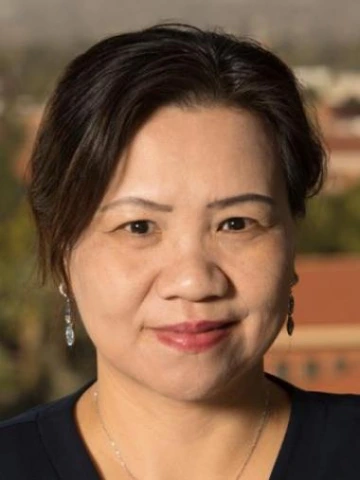
Minying Cai, PhD
Therapeutic Development Program, Research Member
Award: Elected as a Senior Member of the National Academy of Inventors (NAI)
About the Award: The NAI Senior Member award recognizes innovators who are rising stars in their field. According to NAI, Senior Members are active faculty, scientists and administrators with success in patents, licensing and commercialization and have produced technologies that have brought, or aspire to bring, real impact on the welfare of society. Senior Members also foster a spirit of innovation within their communities through enhancing an inventive atmosphere at their institutions, while educating and mentoring the next generation of inventors. With Dr. Cai’s election, the UArizona now has nine Senior Members and nine Fellows at NAI.
Dr. Cai’s Research: Dr. Cai’s research focuses on identifying and developing molecular modulators of melanocortin receptors for the therapeutic treatment of numerous medical disorders associated with the skin, including melanoma. Melanoma is the deadliest form of skin cancer in the United States. Although recent medical advances have prolonged the median overall survival for malignant melanoma patients, tumor cells eventually become resistant to these treatments. Dr. Cai has developed new compounds and approaches to overcome tumor resistance to chemotherapy.
Dr. Cai Says: “It is my greatest honor to receive this award. I wish to take this opportunity to thank all the collaborators, including students from around the world, who I have been working with in the previous 21 years. This will inspire me to continue developing new technologies and drugs to combat the many challenges in health.”
Publications Update: October 2020
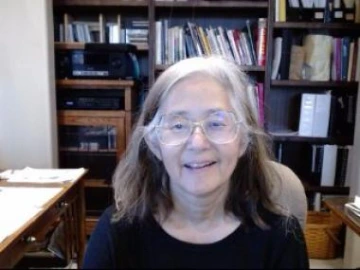
Setsuko K. Chambers, MD
Cancer Biology Program, Research Member
Publication: Clinical Cancer Research
Title: Randomized Phase II Trial of Carboplatin-Paclitaxel Compared with Carboplatin-Paclitaxel-Trastuzumab in Advanced (Stage III-IV) or Recurrent Uterine Serous Carcinomas that Overexpress Her2/Neu (NCT01367002): Updated Overall Survival Analysis
Overview: Dr. Chambers is one of the few nationally recognized gynecologic oncologists elected to the National Academy of Medicine. She specializes in gynecologic cancers and is one of the few gynecologic oncologist physician-scientists in the country, active as both a researcher and clinical gynecologic oncologist. As part of a multi-site IIT, her recent published research shows the overall survival advantage for women with Her2/neu overexpressing endometrial serous carcinoma, an aggressive subtype of endometrial cancer who received a monoclonal antibody drug (Trastuzumab) in combination with standard primary chemotherapy. The effectiveness of the group that received the monoclonal antibody with chemotherapy has led to a new standard of care recognized by The National Comprehensive Cancer Network (NCCN). Previously, the standard of care was only for patients to receive chemotherapy, but adding the monoclonal antibody has improved survival, in particular for those with stages 3&4 disease.
Dr. Chambers Says: “This study led the way for ongoing studies of anti-Her2/neu therapies/combinations in several relatively chemoresistant tumors such as mucinous ovarian carcinoma, and uterine or ovarian carcinosarcoma."
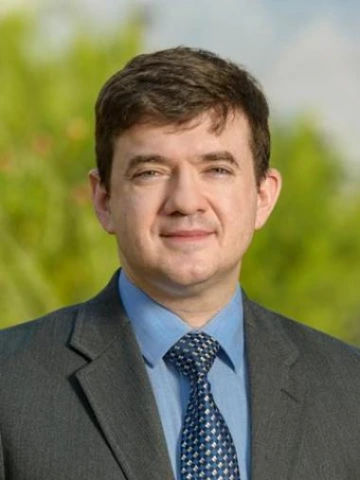
Daniel O. Persky, MD
Associate Director, Clinical Investigations
Therapeutic Development Program, Research Member
Publication: Journal of Clinical Oncology
Title: Positron Emission Tomography–Directed Therapy for Patients With Limited-Stage Diffuse Large B-Cell Lymphoma: Results of Intergroup National Clinical Trials Network Study S1001
Overview: Led by Dr. Persky, a recent collaborative study aimed to improve treatment for patients with Stage I or II (limited stage) diffuse large B-cell lymphoma (DLBCL), the most common type of non-Hodgkin’s lymphoma in the United States. Results published in July suggest radiation is not needed for many patients. Instead, it suggests using a positron emission tomography (PET) scan after three cycles of a chemotherapy combination, known as R-CHOP. If the patient’s scan is negative, they can proceed with one additional round of R-CHOP to complete their treatment. Read more.
Dr. Persky Says: “This can be the new standard of care for limited stage DLBCL patients. Many patients can forgo radiation and receive less chemotherapy while still getting excellent results. We serve this population, and tolerance to the treatment is important to them. It is much easier to get an older patient through four cycles of R-CHOP than it is through six.”
About the University of Arizona Cancer Center
The University of Arizona Cancer Center is the only National Cancer Institute-designated Comprehensive Cancer Center with headquarters in Arizona. The UArizona Cancer Center is supported by NCI Cancer Center Support Grant No. CA023074. With its primary location at the University of Arizona in Tucson, the Cancer Center has more than a dozen research and education offices throughout the state, with more than 300 physicians and scientists working together to prevent and cure cancer. For more information: cancercenter.arizona.edu(Follow us: Facebook | Twitter | YouTube).






